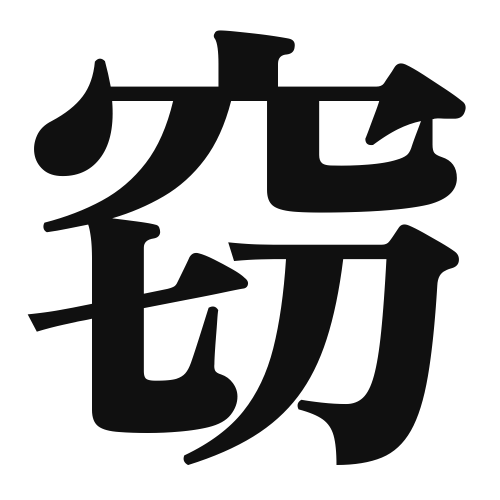1. Overview of Meaning
The kanji “窃” (setsu) means “to steal” or “to pilfer.” It conveys the idea of taking something secretly or without permission.
2. Formation and Radical
Formation of the Kanji: The kanji “窃” is a phonetic-ideographic character (形声文字). It combines the radical for “house” (宀) with a phonetic component that suggests the sound and meaning related to stealing.
Radical: The radical of “窃” is 宀 (kanmuri), which relates to buildings or houses, indicating that the act of stealing often occurs within a dwelling.
3. Examples of Usage
Common Words and Phrases:
- 窃盗 (settou) – theft
- 窃かに (hisokani) – secretly
Example Sentences in Daily Conversation:
- 彼は窃盗で捕まった。 (Kare wa settou de tsukamatta.) – He was caught for theft.
- 窃かに彼女の財布を取った。 (Hisokani kanojo no saifu o totta.) – I secretly took her wallet.
4. Synonyms and Antonyms
Similar Kanji:
- 盗 (tou) – also means “to steal,” but can imply a more general act of theft without the secretive connotation.
Antonyms:
- 与 (yo) – means “to give,” representing the opposite action of taking.
5. Cultural and Historical Background
Relation to Japanese Culture: In Japanese culture, stealing is viewed negatively, and the kanji “窃” reflects the moral implications of dishonesty.
Proverbs and Idioms:
- 盗人に追い銭 (nusubito ni oisen) – “Giving money to a thief,” which means to waste resources on someone unworthy.
